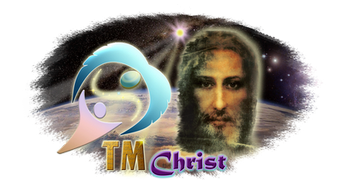Specifically — 1. Just as a multi-cellular organism has an early warning group of cells that are attuned to changing conditions, so does every society already have many individuals who are sensitive and aware of influences that could harm their family, community and society. Just as every multi-cellular organism has a system that connects those cells to the larger organism, so too do our societies have a system that connects those people – the Internet.
What will make those early aware individuals effective and to validate their awareness is to connect them locally with others like them who have the same interests and awareness. They could become a voluntary local team to share their awareness and to discuss those topics and problems through a productive process. If designed correctly, a team could have several functions. Further, several teams could link together as a system of teams for discussing their early awareness of problems of topics that appear to threaten their community or the whole of society.
If we project this concept further we could envision a “social sustainability team system” (SSTS) of hundreds of local, independent teams connected by the Internet into a system of teams. This system would allow Teams to discuss, compare, share, and collaborate on public issues and topics of social sustainability. With a source of social sustainability wisdom, the development of this Team System would bring about a citizenry that is self-informed and self-educated about social topics and issues and capable of designing socially sustainable social policies, for example.
2. Every multi-cellular organism that has a system of early awareness cells also has a system that connects them to its brain, which interprets the information and sends out signals to the rest of the organism. What is envisioned for a similar system that collects the information and wisdom of the teams is what I call the Institute for Human Sustainability (I4HS). It is a repository for the collection, cataloging, collation, summarization and publication of sustainable wisdom that emanates from teams within the SSTS. I4HS also gathers historic wisdom of social stability and sustainability as well as contemporary social science research results along the same lines. One of its main functions is to publish “What Works” that supports social sustainability for individuals, families, communities and societies; and, available to any society, via the internet.
I4HS’s second function would be to make training available to citizens who wish to form and participate effectively in the roles of a local SS Team; to participate in the SS Team System; and to access and use the resources of I4HS.
3. In the early autumn a large flock of geese go through a type of consensus development that eventually generates in the flock rising into the skies as chevrons of geese in migration. In a system of hundreds of local social sustainability teams there obviously will be discussions that reveal there are divergent opinions about what to do, how to proceed, and what options are available. Topics become political!
In a community or society there must be a means of measuring the opinions and sentiments of all of the public, not just teams and team members. For a sustainable society to develop there must be consensus about the topics that are important and the options for their resolution. In other words there must be some sort of unaffected, dispassionate, unaligned process for objectively measuring those opinions, sentiments and preferences. I call that organization, Emanation.
Emanation has two main functions: The first is to provide a continuous and ongoing observation and measurement of public opinion about all public issues of concern to the public and to public executives. It uses scientific opinion research methods to legitimate public opinion without taking a position on any issue. These data then become available to subscribers and to the public.
4. The second function of Emanation is to develop and maintain an Internet connected public media subscribership I call “EM21” that functions similarly as social media. The commonality of a particular public issue is the loci of interest to subscribers. EM21 subscribers can network with each other through their common interest in a specific public issue; and, connect to Emanation to become self-educated with non-position based educational information concerning those issues. This empowers subscribers to network for form “Issue Affinity” groups that may develop into self-informed, self-educated networks. Some issue affinity groups may wish to work with a Social Sustainability Team to develop social action agendas to educate/influence state and federal legislators concerning the social sustainability of particular public social issues. Some issue affinity groups may wish to morph into Implementation Teams to develop socially sustainable social action programs; while others may morph into political social action groups. What is essential is that Emanation’s objectivity must not become compromised by position-oriented involvement with those public issues and groups.
It is vitally important that the work of the I4HS, SSTS, Emanation and EM21 must remain unaffiliated with any social, political, economic or other position in order to provide neutral sources that facilitate the interaction of position-based dialogue. EM21 is designed to provide a venue for position-based dialogue, for political discussions that argue the positions of options for moving a community, city or nation forward along its path of social evolution, while also having available social sustainability wisdom from the I4HS library and from Emanation’s own library of unbiased, objective educational materials for public issues.
Summary. What we see in these four systems is the capacity to tap the collective knowledge, wisdom and decision-making preferences of citizens to guide the course/direction of their communities and societies. The result is the development of informed, educated mass public opinion that forms a socially sustainable base of public participation in the course of their governance. These independent systems together behave much like a murmur of birds, helping communities and societies find their way forward without obvious organizational leadership or authority.
